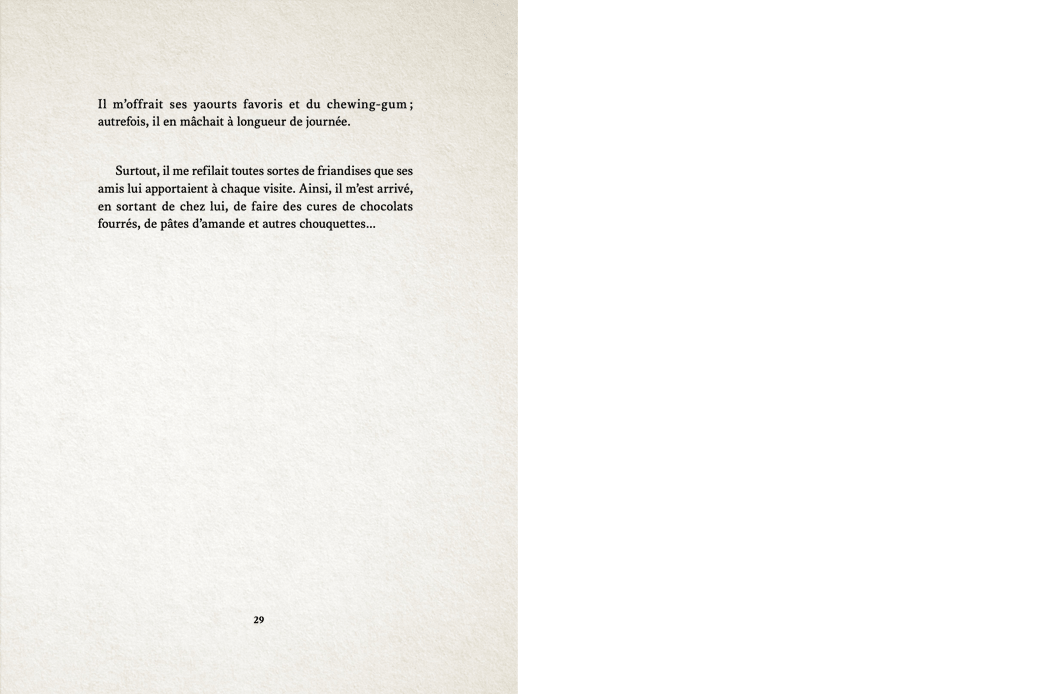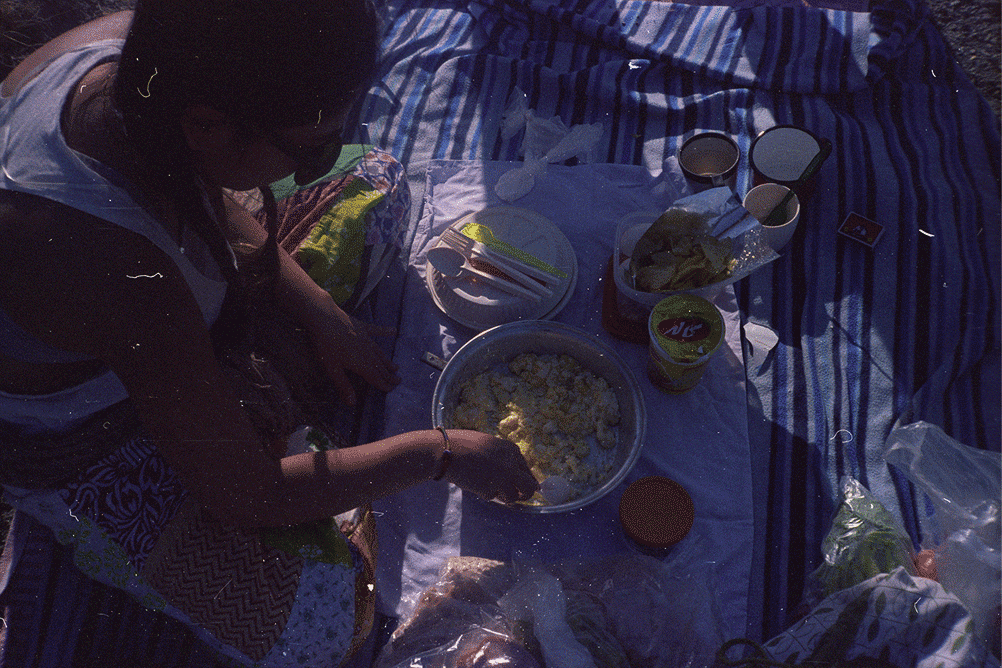Excerpts from Chris Marker (The Impossible Book) by Maroussia Vossen
Claire Foster
PREAMBLE
This book is neither a novel nor an essay—a biography even less.
This is the fragmented account of my relationship to Chris Marker, from my birth to his death.
I’m not going to discuss him as a filmmaker, I’ll leave that to the critics. All I can do is reproduce some of the moments I shared with him, as I remember them: more than fifty years of memories.
Hardly out of childhood, I realized that he compartmentalized his relationships. This allowed him to have a special relationship, a singular connection with the other, thus forming a circle in which he was the center, an ever-shifting center. In this way, today everyone can talk about “their” Chris.
My way of looking (and living) is made up of many gazes: that of a young girl in search of a father; of an adolescent both rebellious and impressed by this man who had the look of a lion; and, ultimately, that of a grown woman, dedicated to her own artistic path. This last one is probably the most critical. But, in any case, our relationship was sustained by an underlying, mutual appreciation. You could say that our connection was both in and beyond words, and beyond all conventional rules.
Chris Marker was a complex character, and his various pseudonyms are proof enough of his extraordinary capacity for change; I could never quite make him out. Paradoxical, contradictory, unpredictable—these are only words. Inevitably, he shook off anything that tried to lock him into a definition.
TO DARE
To dare lay my eyes on a man who “stalked” the world without wanting to be seen.
To dare tell him things he knew but didn’t want to hear.
To dare talk with him about time, about those he no longer wanted to see, about food.
To dare face him and tell him, smiling, “Speak up!”
To dare expose him, gently, in exchange for a smile.
To dare write these words, because near the end of his life he confided in me that he was lost, didn’t know who he was anymore, could no longer distinguish among his many selves.
To dare reveal something that, deep down, he would have wanted us to know.
FOOD
For the two of us to sit down and share a meal—that classified as extraordinary.
He’d always tell me that he dreamed of food pills, so as not to waste time with what he considered to be a frivolous activity: eating.
He’d forget that he was talking to a young girl in search of safe foods.
During my adolescence, food became such a problem for me that, worried for my health, he suggested that I go see a nutritionist he’d found. After my appointment, he called me:
“So?”
“Nothing special, I just need to eat more, especially bananas, the doctor said they’re full of potassium.”
“Really!”
When I visited him the following Sunday, he greeted me sullenly: “I’m sick of eating bananas,” he said. “They’re disgusting.”
I laughed in disbelief. “How many have you been eating?”
“Five or six a day. To support you.”
His menus hardly varied: in the morning, two slices of toast, one day with butter and the next with honey; or cereal, the cheapest kind from the grocery store. For lunch, a meal replacement purchased at the pharmacy; and for dinner, steak tartare with some Nordic-sounding cottage cheese, as a reminder of his trips to Sweden, followed by raspberries or pudding.
One day, he told me that how much he enjoyed, when he was with his friend Simone, drinking what they called their “little tisane,” an ingenious mix of grapefruit juice and whiskey. He liked vodka, but never drank it in front of me.
He really loved to drink.
Over time, I stopped trying to bring him sweets. The only thing I felt like sharing was coconut or cherry tea. And he’d make offerings of his favorite yogurts, or chewing gum, which he chewed a lot back then.
He’d frequently foist upon me the various delicacies given to him by his friends when they visited. I’d leave his apartment armed with the sweet treatment of chocolates, marzipan, and puff pastries.





